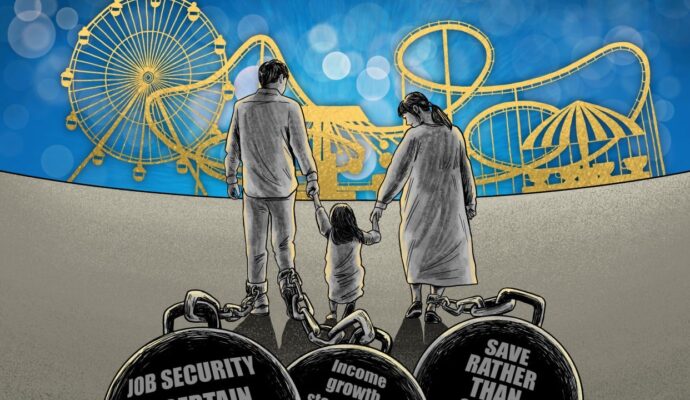You are here- Home
- 2023
- May
- 17
- Taiwan’s KMT opposition party picks New Taipei mayor Hou Yu-ih as presidential candidate
He said he believed Hou would be able to unite the party and work for the interests of Taiwan and the well-being of its people if elected president.
In response, Hou thanked party members for their support and stressed he would do his best to unite the KMT, ease cross-strait tensions, offer hope and a future to young people in Taiwan and, most importantly, lead the KMT back to power in 2024.
The KMT did not hold a primary to select its presidential candidate, instead picking a candidate based on public opinion polls, support among KMT local government heads and legislators and internal party reviews and evaluations.
Hou, who has been rated as one of the island’s most popular mayors with a high approval rating from voters across Taiwan, faced a serious challenge from billionaire Foxconn founder Terry Gou.
“I also thank Terry Gou, who has great achievements in our economic development and has worked with the people here to develop Taiwan,” Hou said in an attempt to win the Foxconn tycoon’s support.
Analysts said Hou would face tremendous challenges, including unifying the party, winning support from young voters, and refining his cross-strait and foreign policies which are seen as a potential weakness.
“The first thing Hou must do is to unify the party as the support for Gou could create a rift within the KMT,” said Huang Kwei-bo, a professor of diplomacy at National Chengchi University in Taipei.
“But with his ability to manage interpersonal relationships, he is expected to be able to pacify party members who wanted Gou or other aspirants as the presidential candidate.”
On Wednesday Gou congratulated his rival and vowed to do his best to support Hou in the contest to “pull the impotent government off the shelf”.
Ko Wen-je could threaten Hou’s chances by taking “light blue” votes off him. Photo: Reuters
“He is a total blank in these two areas, and hardly anyone in the US or the world knows him, nor does anyone in China know him well enough,” Wang said.
The United States, like most countries, does not officially recognise Taiwan as a sovereign state, but it opposes any forcible change to the status quo, has been a strong supporter of the island internationally and does not want to see it leaning too much towards Beijing.
Huang said that as a mayor, Hou was not supposed to speak too much about international and cross-strait relations.
“Take the 1992 consensus – a KMT stance and a key argument in cross-strait politics – for example. This term has become stigmatised due to the DPP’s refusal to acknowledge it. But as a mayor, it is not appropriate for Hou to touch on this issue heavily,” Huang said.
The consensus refers to a verbal understanding reached in 1992, when both sides agreed there is one China but each can have its own interpretation of what that means.
But the independence-leaning DPP has warned that Beijing, which views Taiwan as part of its own territory, will use it as the political basis for taking control of the island.
Cross-strait relations turned sour after Tsai Ing-wen became president in 2016 and refused to accept the consensus, which she described as tantamount to acknowledging that Taiwan is a part of China.
Huang said Hou was expected to use a more moderate term that could be accepted by both Beijing and the “deep blue” camp, which had previously criticised Hou’s stance as insufficiently mainland-friendly.
Huang said Hou was also expected to visit the US in September to visit government officials and think tanks to enhance his foreign relations experience.
Vice-President William Lai is the ruling DPP’s candidate. Photo: Reuters
Arthur Wang, from the Asia-Pacific think tank, said the government would be able to use its position to help its candidate so “Lai should stand a better chance”.
He also said he did not think the result would be affected by external factors, such as the crackdown on dissent in Hong Kong and introduction of a national security law.
“There should be no such factors unless Beijing does something which would greatly infuriate the Taiwanese people during the election, given that voters here have become increasingly annoyed by the ‘war or peace’ campaign tactic used by the DPP in previous polls,” he said.
In the 2016 and 2020 presidential polls, Tsai used the situation in Hong Kong to win support from Taiwanese voters, saying the island risked ending up like Hong Kong if voters backed the KMT, which she described as pro-China.
Wang Kung-yi, however, said Tsai’s anti-Beijing policy had resulted in growing tensions in the Taiwan Strait and the risk of war with the mainland – a situation that had worried voters here, especially young people.
South China Morning Post


